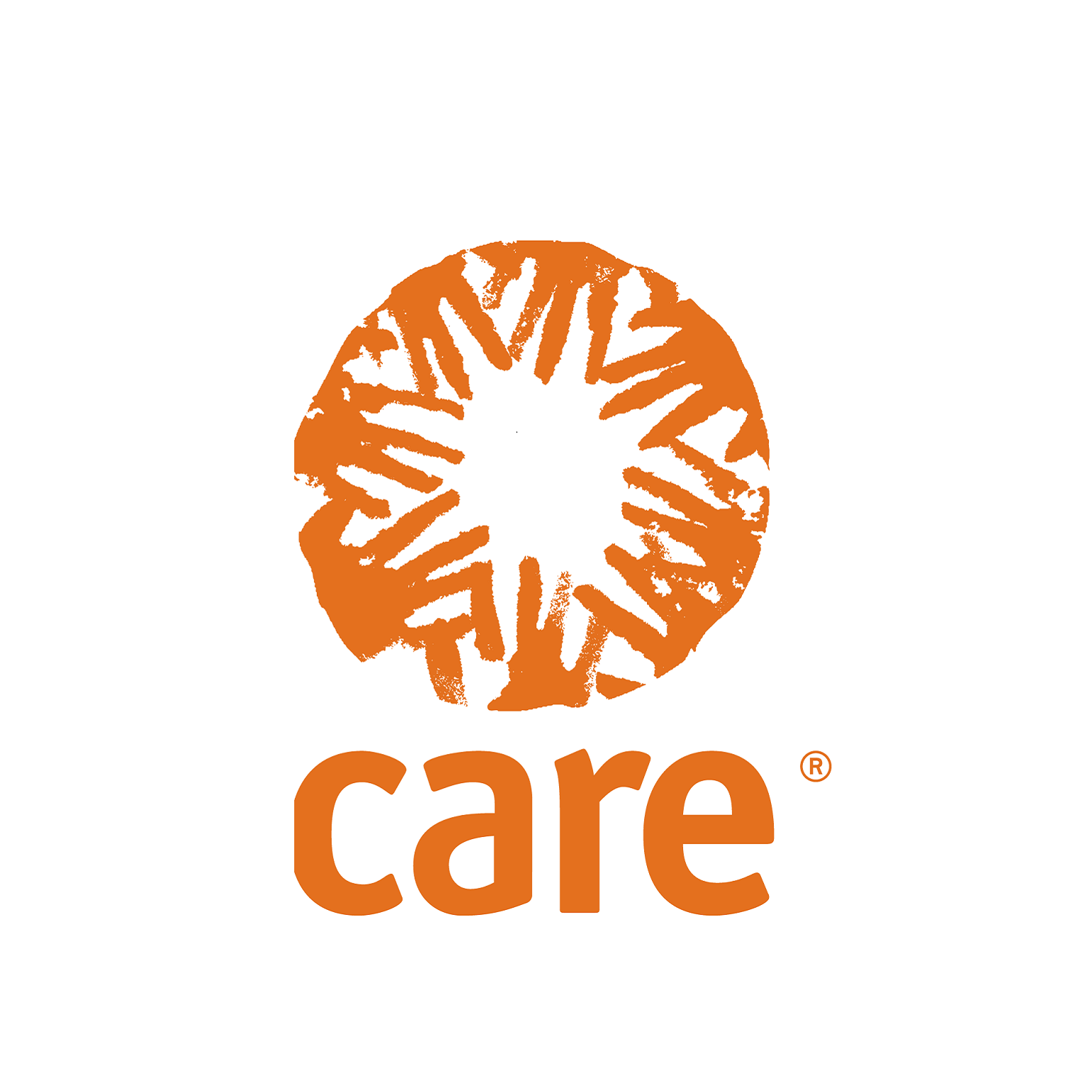Episodes
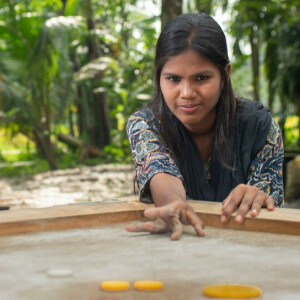
Tuesday Apr 25, 2023
Life Happens: Balancing Rigor and Lived Truth
Tuesday Apr 25, 2023
Tuesday Apr 25, 2023
Anne Sprinkel talks about trying to implement, translate, and apply learnings from a Randomized Controlled Trial (RCT) in the middle of a pandemic. "Communities are not laboratories, and they deserve so much more." She talks about how to combine qualitative data and triangulate different perspectives in an RCT, and all of the learning around it. "Simply taking one person at their word...that is truth." Anne first joined the podcast in 2019, talking about Square Pegs and Round Holes and fitting research to community needs. Nearly four years later, she's talking about what their RCT told them, social norms findings, and balancing people's lived truth with "rigorous" research findings.
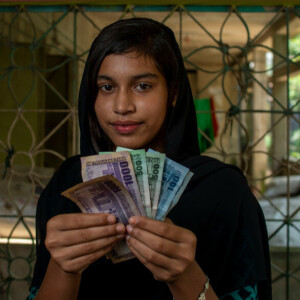
Monday Mar 20, 2023
Monday Mar 20, 2023
Mark Muckerheide talks about what it would take to close the gap that international development aims to work on. Right now, Mark's team estimates that many programs get $2 for every dollar they put in. To truly close the gap, it needs to be $20 per dollar in. So how do we get 10 times better? Focus on putting "money in her pockets" and think about measuring efficiency by the benefits to women who make less than $4 per day. That means we need to think about the bigger system, and fixing the market failures that prevent women from participating fully.
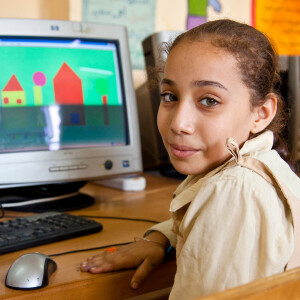
Monday Mar 06, 2023
Why Resilience Beats Sustainability
Monday Mar 06, 2023
Monday Mar 06, 2023
Sustainability fails because it assumes progress is a straight line, and things will always be getting better. Gloria Steele talks about why our thinking about how COVID, climate change, and conflict show us that we need resilience, the ability of people and systems to bounce back. Sustainability is continuing to do what others define as progress. Resilience is being able to choose the path that works for you. What's an example of resilience? Refusing to allow gender norms to define who has capacity, and what capacities they have. Another tip she has is "we are only as good as we are able to learn."
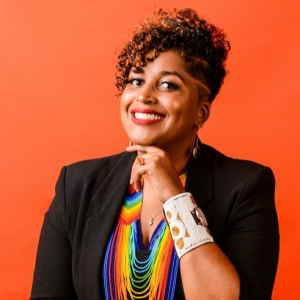
Monday Feb 20, 2023
Stop Analyzing and Act
Monday Feb 20, 2023
Monday Feb 20, 2023
Crystal Simeoni, the Director of NAWI Collective, shares tips for decolonizing, deconstructing, bravery, and joy in development. International development gets so much wrong, but there are ways to be better. Some of Crystal's tips include: align your operations with your values, give up power, center care, and just get it done. You know what you need to do; stop analyzing and act. A few other key pieces of advice: "slow it way down," "pull your head up from your laptop," and "the narrative of capacity is a lie." Crystal helps think about redefining success, and who gets to build the future. And if she could wave a magic wand, Crystal would have a feminist audit firm take charge of operations.
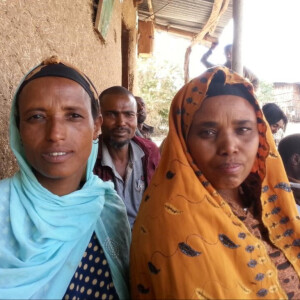
Tuesday Jan 10, 2023
Perception is Everything
Tuesday Jan 10, 2023
Tuesday Jan 10, 2023
When you're leading a change to have more equity in your staffing practices, people who hold privilege will feel that they are losing power, no matter what the data says. You also don't usually get to such a profound organizational change unless you REALLY have a problem. Listen to Esther Watts talk about how CARE Ethiopia had to change it's policies and practices so the staff was no longer 26% women--the worst equity rate of any office in the CARE federation, and what they had to do to get there. Diversity makes a difference, and you have to have a lot of courage to get there. Esther's advice? "go go go. Stand by the courage of your convictions."
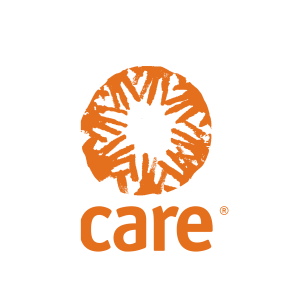
Monday Dec 12, 2022
Get Over It: Learning from Failure 2022
Monday Dec 12, 2022
Monday Dec 12, 2022
"If failure is uncomfortable, get over it." Rebecca Rosetti and Tara Ross talk about CARE's 2022 Learning from Failure, and how their background in laboratory sciences helped them learn early that failure is inevitable. "Failure is just data." They talk about what CARE sees as big gaps this year--partnerships and sustainability--and how we can now see that projects are improving over time. Gender and M&E have been two big areas of improvement since we started.
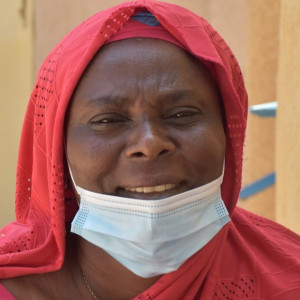
Wednesday Nov 16, 2022
The Data Belongs to Them
Wednesday Nov 16, 2022
Wednesday Nov 16, 2022
In part 2 of her podcast, Kalkidan Yihun talks about how to make sure that data transforms into action--and especially that women and girls who contribute data get that data back in ways they can use themselves. Instead of extractive processes that feed into a black box that communities never see, think about how to format and share data so women can act. Who needs to see it? Who will take action? What ways make sharing that data safe for people who provided it? Kal coordinates the Women Respond project, and offers tips and lessons about what doesn't work (and does) in putting women's voices first.
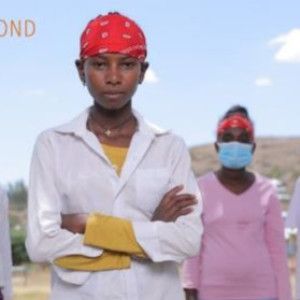
Wednesday Nov 09, 2022
We should not be a burden
Wednesday Nov 09, 2022
Wednesday Nov 09, 2022
Kalkidan Yihun talks about how to redesign data collection so it centers what people--especially women--want and need, instead of being a burden on their time and lives because of what's easiest for the data collectors and researchers. Kal coordinates the Women Respond project, and offers tips and lessons about what doesn't work (and does) in putting women's voices first.
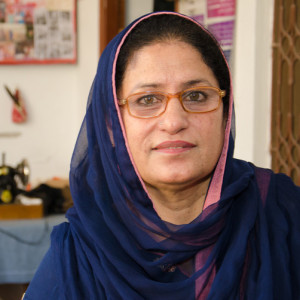
Wednesday Nov 02, 2022
Always Have a Plan B: How to Assess Risk within Partnerships
Wednesday Nov 02, 2022
Wednesday Nov 02, 2022
What do you do when your pursuit of a necessary program partner falls through? Don’t waste time on pushing a failed strategy, and don’t be afraid to move on. How do you guarantee commitment from partners early on? Assess interest from partners to ensure equal buy-in on both sides. Naureen Chaudhry identifies two challenges and the resulting lessons experienced by the CARE Pakistan team while working with female entrepreneurs through the CARE Ignite Program.
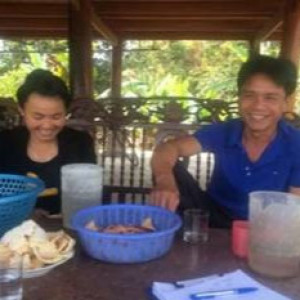
Wednesday Oct 19, 2022
Know Your Partners
Wednesday Oct 19, 2022
Wednesday Oct 19, 2022
Tran Thi Minh Nguyet discusses her experience with working to increase access to finance for local micro and small women-led businesses in Vietnam through the CARE Ignite program. Partnerships with microfinance institutions can prove to be very difficult in these contexts. How to work against experiencing potential failures with these partners? Build in flexibility in financial product development that allows for pivots in the face of issues. Additionally, have a deep understanding of your partner from the start and develop output based contracts with potential partners to prevent failures during product rollout.
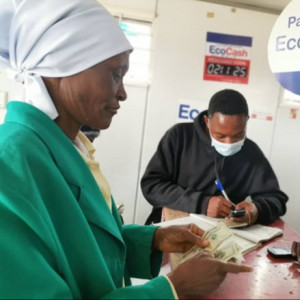
Wednesday Oct 05, 2022
What we think we know: why cash didn’t work without addressing GBV
Wednesday Oct 05, 2022
Wednesday Oct 05, 2022
Cash transfers designed to help women re-enter markets after COVID-19 lockdowns lifted worked really well, AFTER we added programming to address GBV. Partway through the project, gender dialogues showed that women were facing so much violence that even cash was not enough to get back into the market. So the project re-designed their work to include social norms and addressing GBV, and helped more than 1,400 vendors get back on track. Media Matyanga talks about what the team learned, how they learned it, and what they did next.
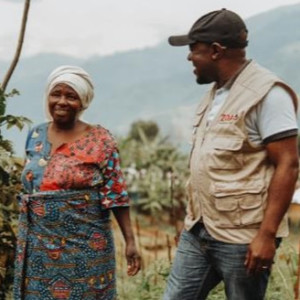
Tuesday Sep 06, 2022
Myths about Flexibility
Tuesday Sep 06, 2022
Tuesday Sep 06, 2022
Rojan Bolling and Hannah Itcovitz talk about their paper on how to design flexible programs that work for fragile settings. Along the way, they discovered 4 myths that everyone believes work, but that really don't. Flexibility can make a huge difference--especially in complex contexts--and that makes it even more important that we do it well. The idea of flexibility in institutions and relations, not just in operations, and getting beyond a 15% budget benchmark are two of their key insights.
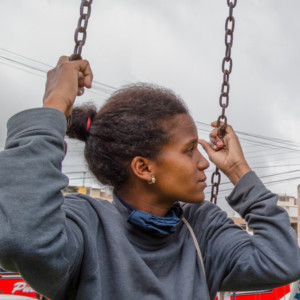
Thursday May 26, 2022
The Chance To Choose Something Different: Crypto, Cash, and Refugees
Thursday May 26, 2022
Thursday May 26, 2022
Monica Tobar and Ronald Picso talk about their experience working with cryptocurrency instead of cash to support refugees and host communities in Ecuador. Some key lessons? Just do it--don't spend all of your time trying to get everything perfect. Get lots of feedback--participants will tell you what's not working. Build more supply--get many vendors up to speed on crypto so people have choices about where to shop. Plan for training--it takes time to learn a new technology, especially in a crisis. Plan lots of time to support people in using and adopting a new tool, it won't happen overnight.
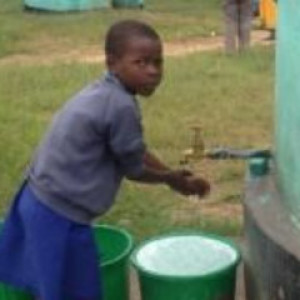
Monday May 02, 2022
Don’t Be Afraid to Stop When It’s Not Working
Monday May 02, 2022
Monday May 02, 2022
We talk about sustainability all the time, and commit to guaranteeing it in almost every development program. But is it really working? CARE launched a series of post-project studies to find out what lasts and what doesn't after a project closes. Caitlin Shannon and Maria Tobin talk about what they learned doesn't work. A few tips they saw across all 9 research studies:
- No matter how good it is, training alone is not enough for sustained impact.
- If you can't figure out how people will get paid in the long term, it probably won't last.
- You have to design differently. Participants who will have to live with systems in the long term should be at the heart of decisions about sustainability.
There are lots of things that worked too. Check out all of the studies to learn more.
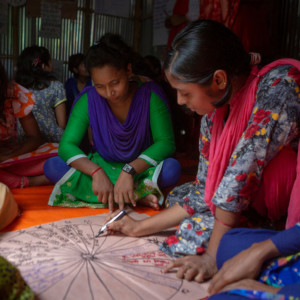
Tuesday Mar 01, 2022
Reflection and Risk: Lessons from Girl-Led Activism
Tuesday Mar 01, 2022
Tuesday Mar 01, 2022
"You have to believe that girls have the power. You don't empower the girl; you have to see the power in her." Suniti Neogy from CARE and Jayanthi Pushkaran talk about lessons from girl-led activism in the Tipping Point project, adapting a model from EMpower in India to Bangladesh and Nepal. What would they do differently now? Have girls lead more! It's very difficult for adults to let go of control, but girls can lead themselves. Ask them the questions; don't tell them the answers. Help girls think through risks and what activism means for them, and how we can be their allies. In needs cultivation, coordination, and commitment.
Thanks to Colleen Farrell for hosting the interview!

